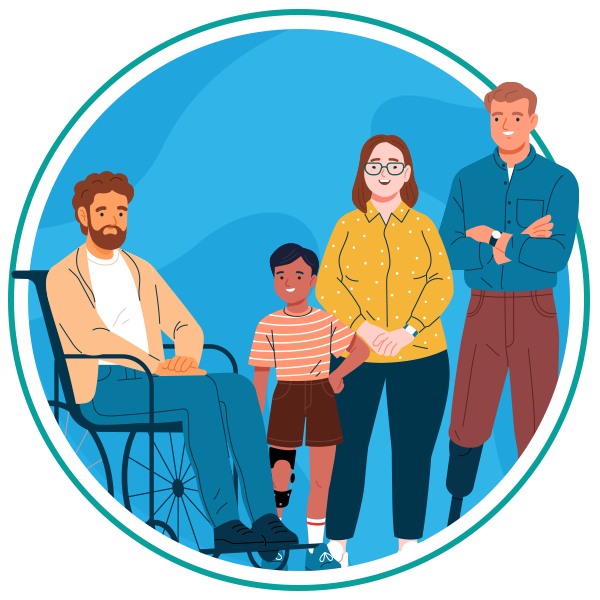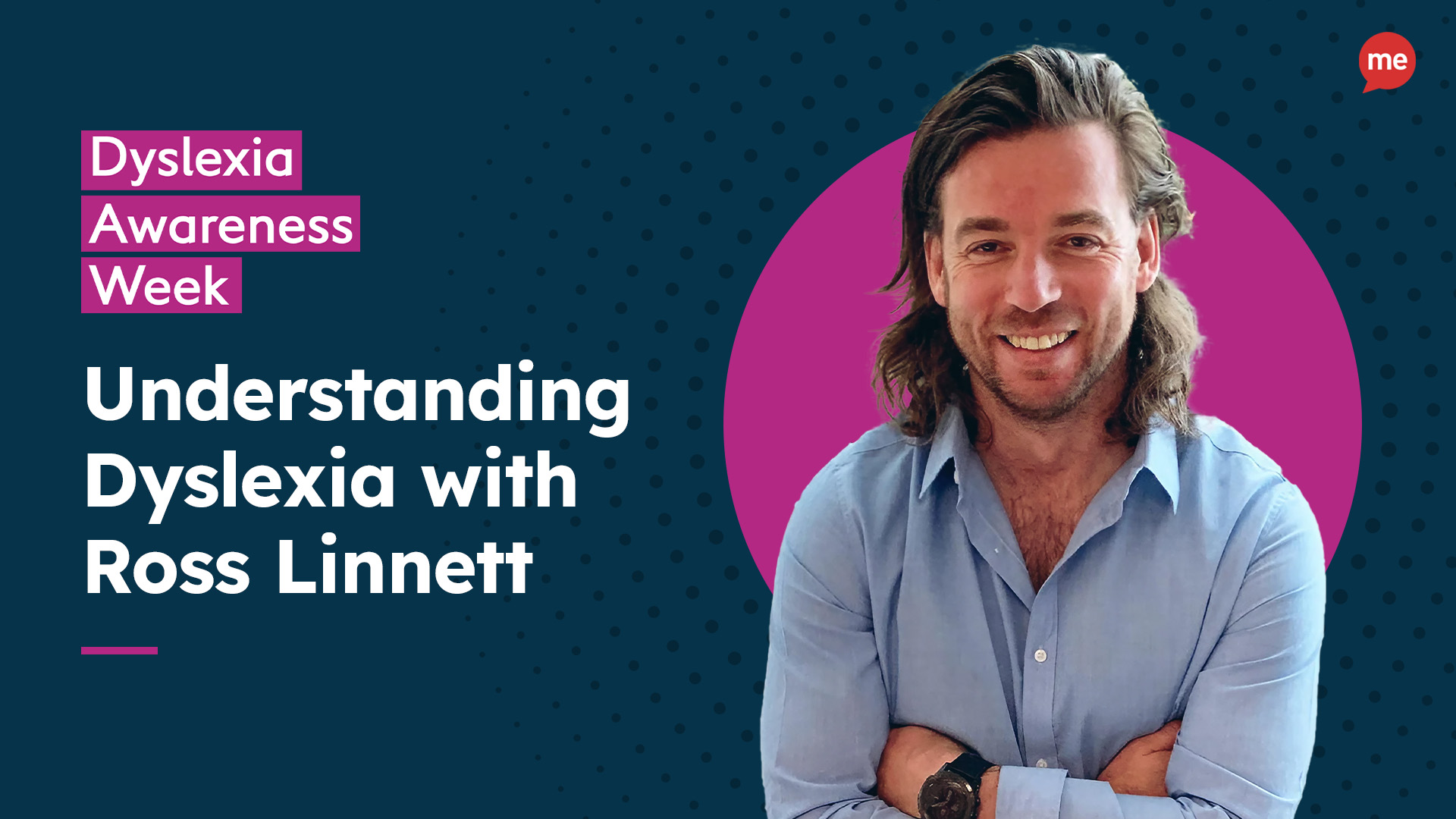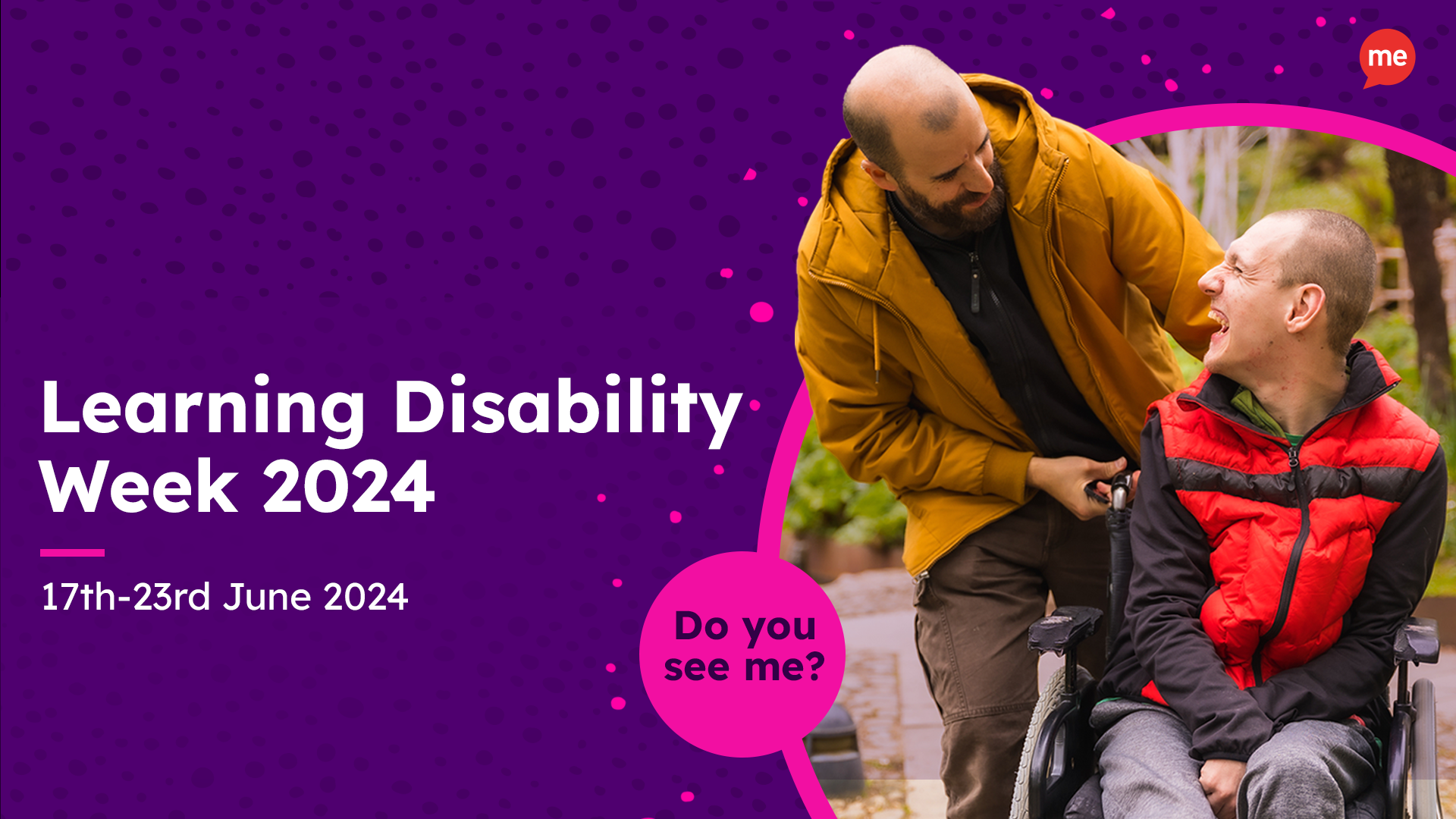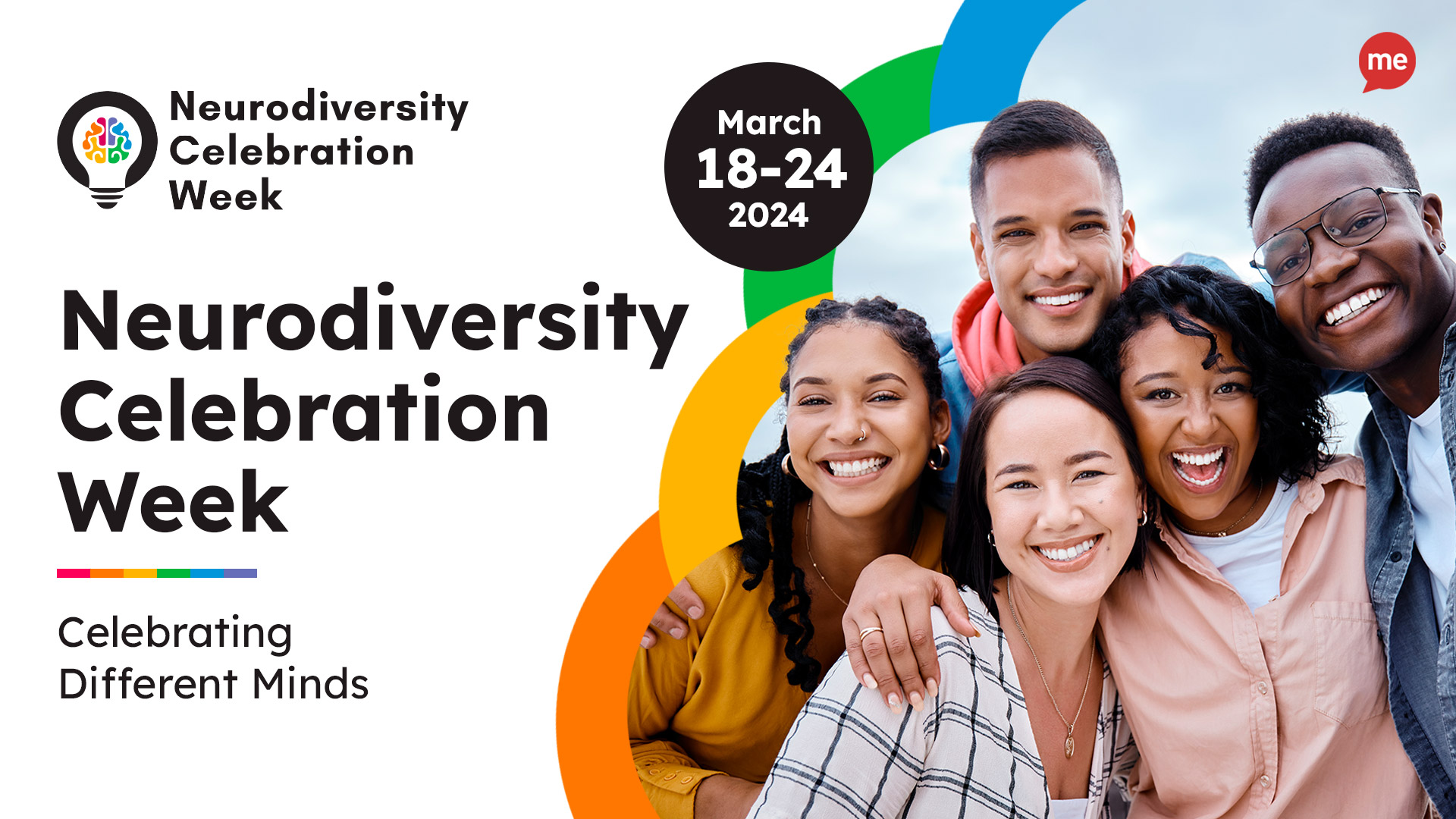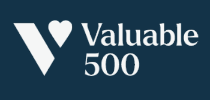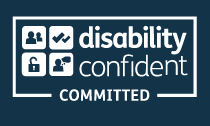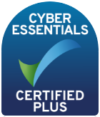The 3rd of December is International Day of Persons with Disabilities (IDPWD), which aims to promote the rights and well-being of persons with disabilities in all spheres of society.
This year’s event marks the 30th anniversary of the initiative, and the theme is: “United in action to rescue and achieve the sustainable development goals for, with and by persons with disabilities”.
As an organisation dedicated to accessibility and inclusion for all, IDPWD is something the whole team at Recite Me is enthusiastic to get behind. But, precisely what are the sustainable development goals in question, and what is the role of digital accessibility in the process?
Let’s start with the basics and go from there.
What are the UN’s Sustainable Development Goals (SDGs)?
The Sustainable Development Goals (SDGs) are a set of 17 interconnected global objectives established by the United Nations in 2015 to address the world’s most pressing social, economic, and environmental challenges. These goals, to be achieved by 2030, aim to promote prosperity, protect the planet, and ensure peace and well-being for all.
They cover a wide range of issues, including poverty, hunger, health, education, gender equality, clean water, affordable and clean energy, and much more.
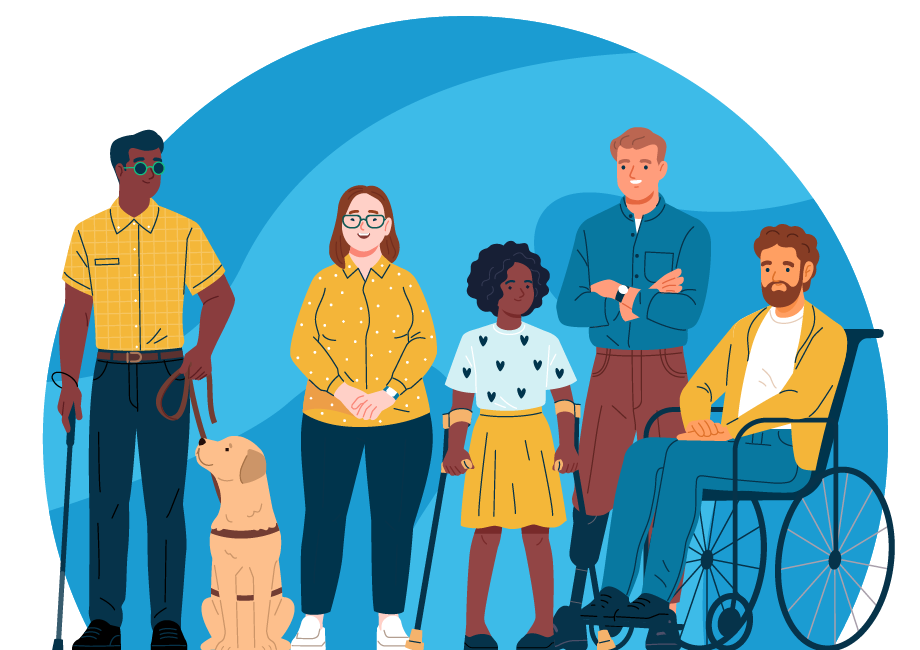
What’s the “Rescue” Bit All About?
You might be wondering what that first part of the IDPWP theme is all about:
“United in action to rescue and achieve the sustainable development goals for, with and by persons with disabilities”.
The ‘rescue’ element refers to the impression that many SDGs have fallen behind, specifically for people with disabilities. According to the latest UN research, at the mid-point of the implementation period for the 2030 Agenda, the world is not on track to reach many of the targets above. Plus, for many SDGs, progress has either stalled or regressed below the 2015 baseline.
What is Digital Accessibility, and Why is it Essential for People with Disabilities?
Digital accessibility refers to the design and development of online content, platforms, and technologies that can be easily accessed and used by everyone, including individuals with disabilities. The principle foundations involve making websites, applications, documents, and other digital assets perceivable, operable, understandable, and robust (as per the Web Content Accessibility Guidelines) for people with diverse abilities.
Digital accessibility is particularly relevant to those with disabilities because:
- Having equal access to online resources ensures that people with disabilities have the same opportunities to access information and participate in the digital world as everyone else.
- Inclusive website design principles help to create products that are available to and benefit a broader audience.
- If companies ignore the ethical and legal considerations relating to digital inclusion, they might inadvertently exclude the disabled population.
- Making advancements in technology available to everyone provides more equitable opportunities to leverage the benefits for personal (e.g. healthcare) and professional (e.g. education) development.
How Does Digital Accessibility Play a Role in Achieving Sustainable Development Goals?
The United Nations SDGs for 2030 encompass a broad range of objectives aimed at addressing global challenges, and digital accessibility is directly relevant to several of them:
- Goal 4: Quality Education – Digital accessibility in educational materials and online platforms ensures everyone has equal access to educational resources. This fosters inclusive and quality education for all.
- Goal 8: Decent Work and Economic Growth – Accessible digital platforms enhance economic opportunities for individuals with disabilities, giving them equal access to job information, application processes, and remote work opportunities.
- Goal 10: Reduced Inequalities – Accessible websites ensure that individuals with disabilities can actively participate in all aspects of society, including the digital economy, education, and social interactions.
- Goal 11: Sustainable Cities and Communities – Inclusive cities with smart, accessible technology systems allow people with disabilities to navigate and access essential services and information.
- Goal 17: Partnerships for the Goals – By prioritising digital accessibility, stakeholders can work together to ensure that technology is an enabler for all, fostering a more inclusive and sustainable world.
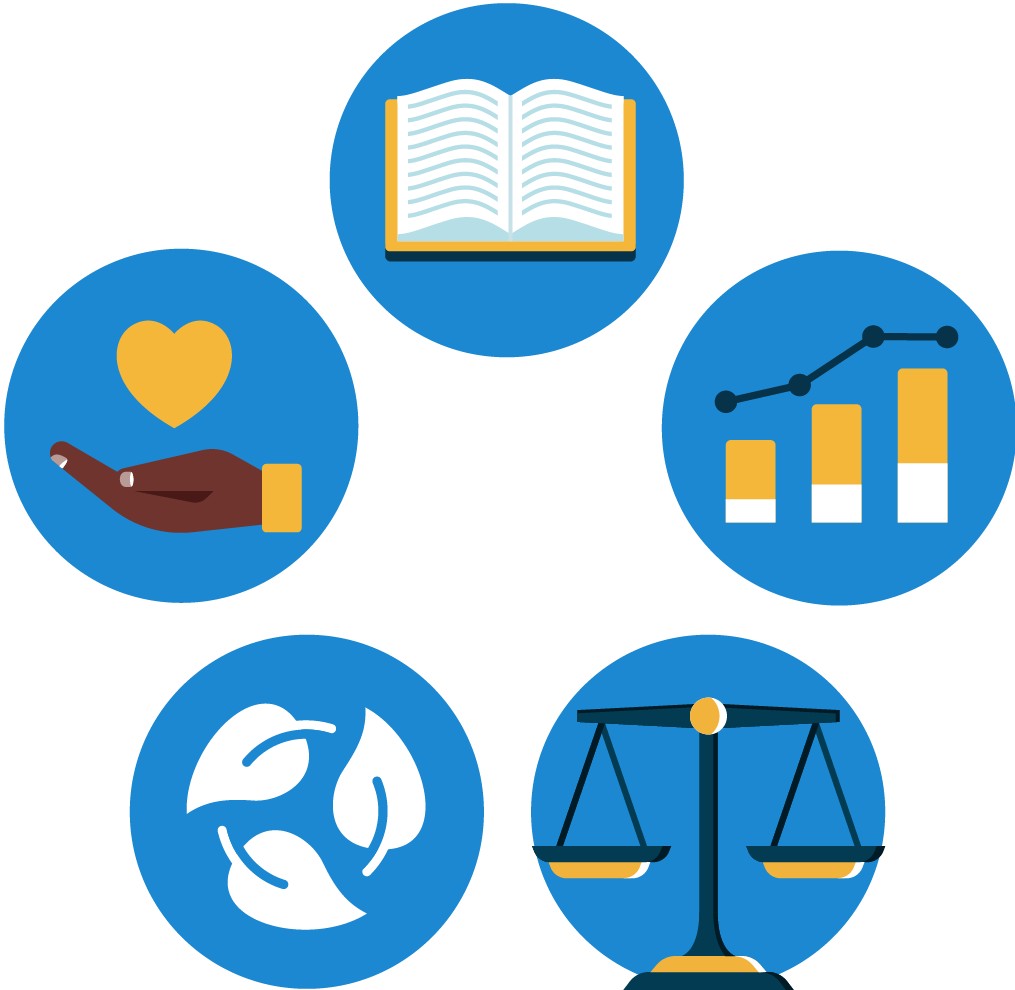
However, even for many of the other SDGs, it’s arguable that software like Recite Me’s suite of digital accessibility tools can make a significant difference, as any type of organisation with an accessible website is already making a significant stride towards equality, equity, and inclusion.
Digital Accessibility Tools in Action
Recite Me is proud to work with several industry leaders across an array of sectors directly involved in the 2030 SDG mission, including:
- Food banks
- Health organisations
- Education institutions
- Climate-focused organisations
- Water and utility companies
To understand the difference assistive technology makes to the end users and beneficiaries of these types of businesses, we invite you to read our user feedback.
From an organisational perspective, the response has been equally positive. Here’s what a few of our clients have to say about how improving digital accessibility in partnership with Recite Me has played a fundamental role in the success of their strategies.
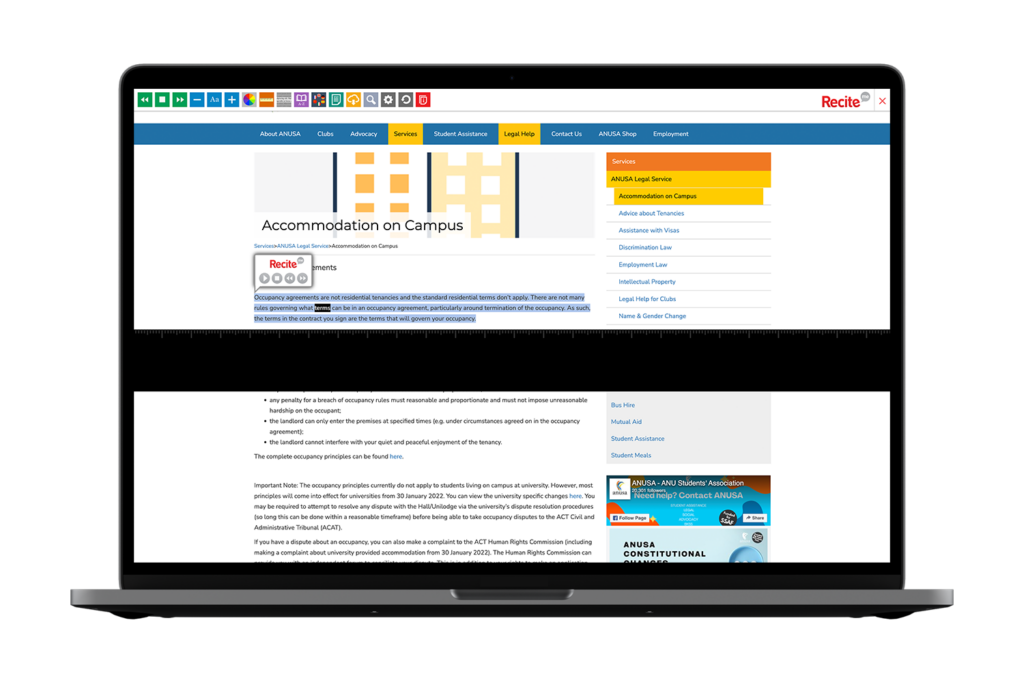
ANUSA (SDG: Education)
“Our journey with Recite Me began with the 2020 ANU Disabilities Officer who was interested in making the ANUSA website as accessible as possible. As there are well over 10,000 undergraduate students at ANU, we love that the Recite Me toolbar has so many different functionalities to help make the website accessible and easy to use so that we can reach as many students as possible. In addition, the ability for students to translate pages of the website into different languages is a great plus.”
Kate Melhuish, Communications Officer, ANU Students’ Association
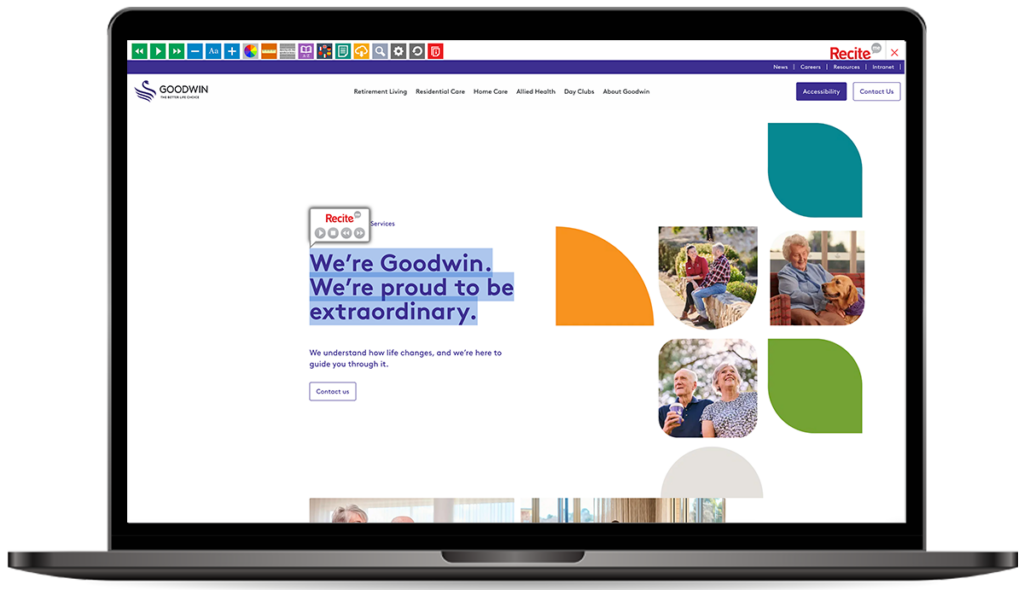
Goodwin Aged Care Services (SDG: Health & Well-being)
“The Recite Me toolbar has enabled us to foster an inclusive online experience for our website users. As an organisation that helps people to live independently in a supportive community, it was key that this extended across our website, which is why we implemented Recite Me. We love the variation of tools available and our users appreciate being able to customise our website content in a way that suits their needs.”
Rafe Morris, General Manager of Marketing and Communications, Goodwin
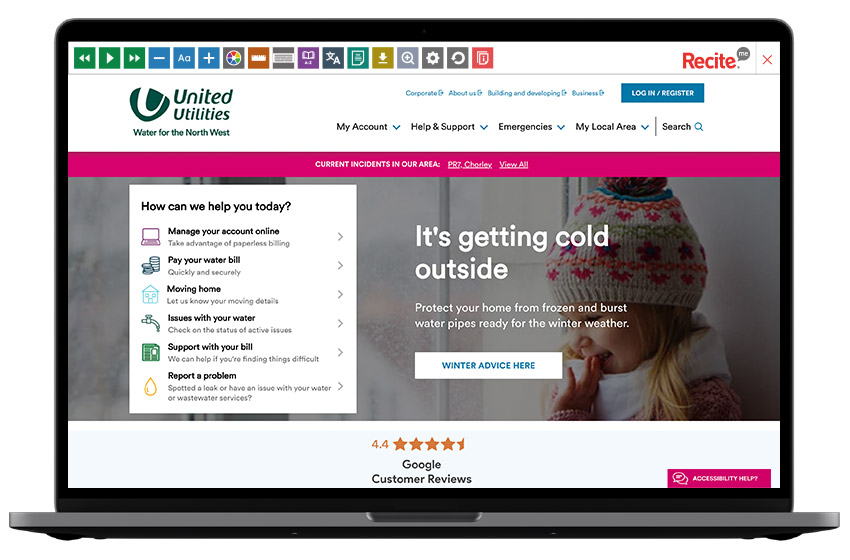
United Utilities (SDG: Clean Water and Sanitation)
“We chose to install the Recite Me assistive toolbar to make our website accessible and truly inclusive to all. The internet can be an incredibly intimidating place and anyone who finds it difficult to understand or communicate is at a significant disadvantage.”
Louise Beardmore, Customer Services and People Director
Achieving Impactful Change: The Power of Inclusive Organisational Practices
As the companies we’ve showcased above have demonstrated, organisations often serve as the building blocks for societal change, with the most impactful change starting from within. By internalising the values of inclusivity and accessibility, companies become agents of transformation, setting a precedent for a more equitable future.
The first step on the journey is to take deliberate steps by adopting inclusive recruitment policies that foster a supportive organisational culture where every individual can thrive and contribute meaningfully.
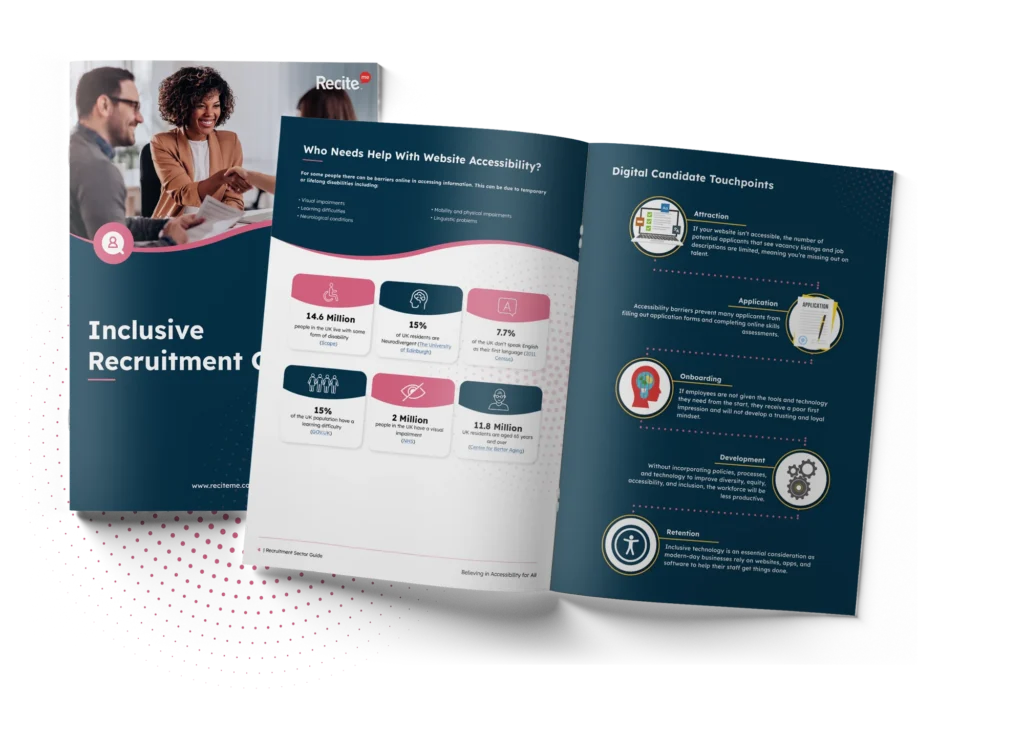
Download our Inclusive Recruitment Guide
Break down digital barriers and attract the best talent for your business!
Discover hidden talent and recruit from a larger talent pool by providing assistive technology. Support your potential candidates who may be disabled, visually impaired or who speak English as a second language to research and apply for jobs online.
